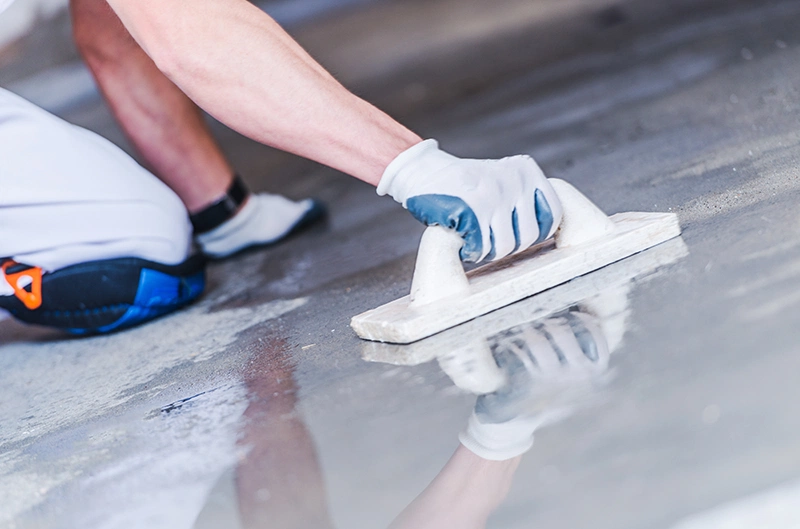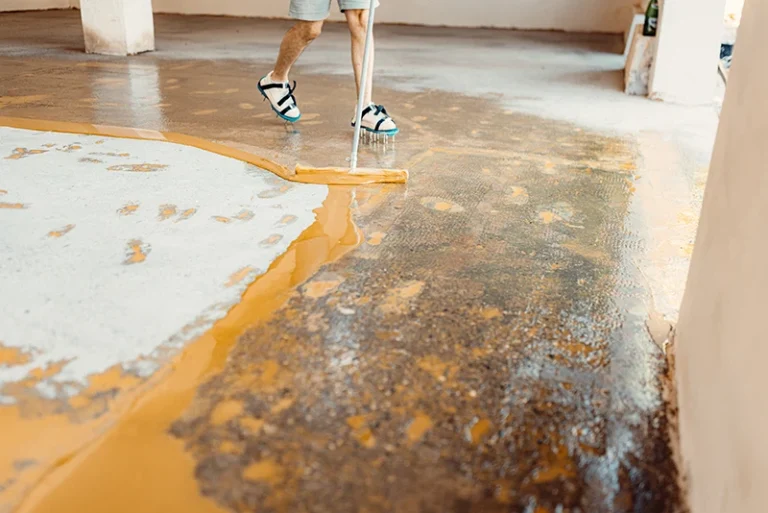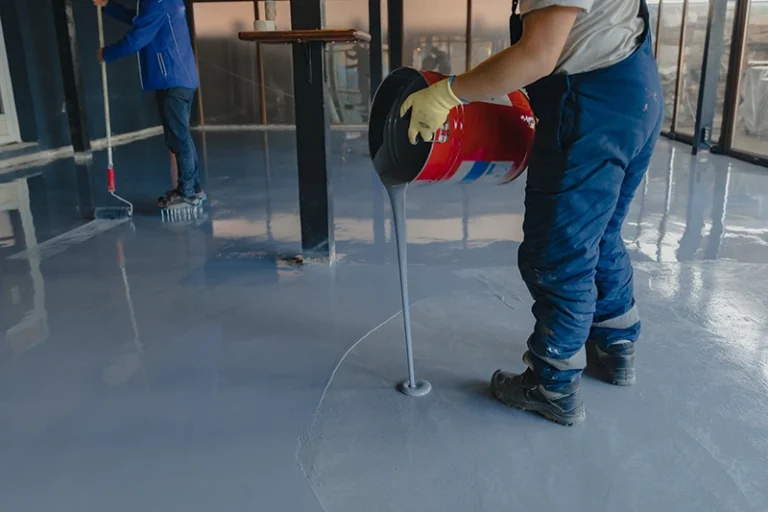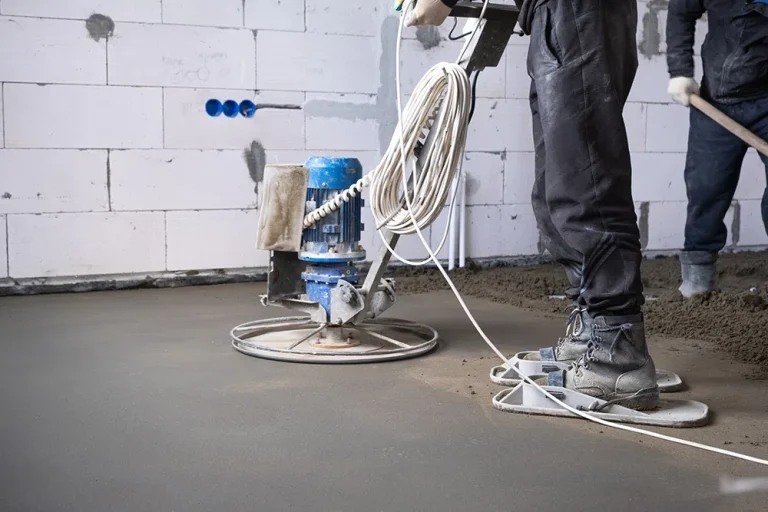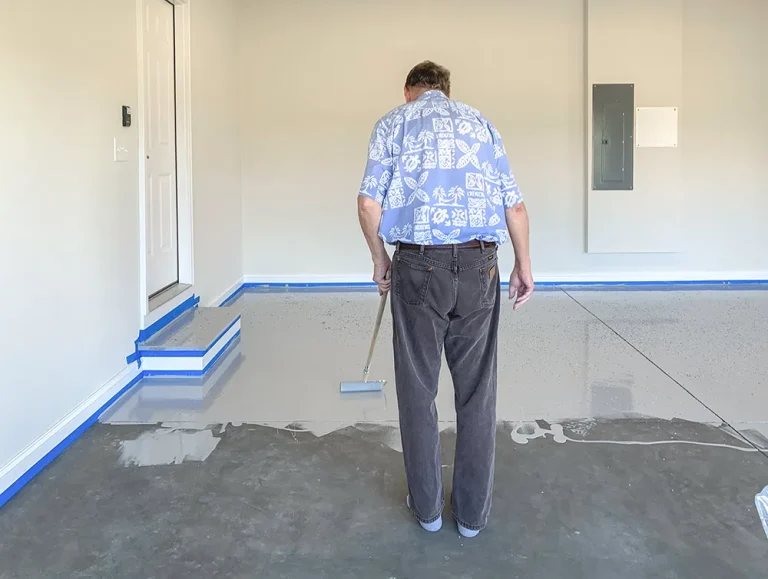How Do Epoxy Flooring Companies Handle Large Commercial Projects?
When it comes to large commercial projects, such as warehouses, hospitals, retail centers, or manufacturing plants, epoxy flooring is a reliable, long-lasting solution. These environments require floors that are not only durable but also easy to maintain and resistant to heavy traffic, chemicals, and wear.
However, completing large-scale epoxy installations involves far more than simply pouring and coating. It takes careful planning, the right equipment, and skilled project management.
Understanding how epoxy flooring companies handle these complex jobs can help business owners and facility managers set realistic expectations and ensure a successful outcome.
Initial Consultation and Detailed Planning
Commercial epoxy flooring projects begin with a comprehensive evaluation of the site and project goals.
- Site assessments help define scope and challenges: Flooring companies inspect the concrete’s condition, check for moisture issues, and note any repairs or prep work needed before installation.
- Custom solutions are developed to fit industry needs: Whether it’s slip-resistant coatings for a restaurant kitchen or chemical-resistant finishes for a lab, contractors tailor their approach to meet specific performance requirements.
- Project timelines and staging plans are created upfront: Coordinating work around facility operations is critical in large spaces that need to remain partially functional.
Planning is a critical first step that ensures the project aligns with your timeline, industry regulations, and operational needs.
Surface Preparation at Scale
Proper surface prep is vital for epoxy adhesion and long-term durability, especially in large commercial spaces.
- Heavy-duty grinders, scarifiers, or shot blasters are used: These industrial machines prepare large surface areas quickly and thoroughly, helping to reduce project downtime.
- Cracks, joints, and damage are repaired before coating: Addressing imperfections at this stage prevents epoxy failure and ensures a smooth, even finish.
- Moisture testing and vapor barrier installation are often required: Moisture levels in concrete can compromise epoxy, so testing and mitigation steps are essential.
Surface preparation is often one of the most time-intensive phases, but it’s crucial for preventing future delamination or wear.
Efficient Application Techniques
Large-scale epoxy flooring projects require strategic planning to ensure speed without sacrificing quality.
- Work is done in sections to maintain quality and minimize disruption. In facilities that remain operational, flooring companies divide the area into manageable zones to maintain safety and workflow.
- Multiple crew members coordinate application in stages: While one team handles base coats, another may prepare subsequent areas or manage decorative finishes.
- High-performance equipment allows for fast, consistent application: Commercial-grade squeegees, rollers, and mixing stations ensure uniform coating across thousands of square feet.
Coordinated teams and advanced tools make it possible to complete large installations within tight deadlines.
Specialized Coatings and Finishes
Commercial environments often require more than just a standard industrial floor coating.
- Slip-resistant additives are commonly included: In areas exposed to moisture or heavy foot traffic, grit or textured finishes improve safety and reduce liability risks.
- High-build or urethane topcoats enhance durability: These finishes provide extra protection against abrasion, chemicals, and UV exposure, especially in industrial settings.
- Color coding and safety markings are integrated: Warehouses and manufacturing plants often require different zones or directional markings, which are incorporated into the design.
These customization options help businesses meet safety standards while optimizing functionality and aesthetics.
Post-Installation Inspection and Support
Once the epoxy is installed, flooring companies ensure the results meet quality standards before turning over the space.
- Final inspections check for defects, bubbles, or uneven areas: Contractors walk the site with the client to confirm satisfaction and address any last-minute adjustments.
- Maintenance recommendations are provided: Clients receive guidance on how to clean and care for their epoxy floors to maximize longevity and performance.
- Warranties and support plans are often available: Commercial clients may receive warranties or optional maintenance packages for ongoing peace of mind.
Post-project support is a key part of commercial epoxy services, ensuring that the floor continues to meet performance expectations over time.
Large commercial epoxy flooring projects demand much more than simple product application—they require detailed planning, skilled labor, and high-performance equipment. From site assessments and surface preparation to phased application and specialty coatings, professional epoxy flooring companies use a proven, systematic approach to deliver reliable results at scale.
By understanding what goes into the process, business owners and facility managers can better partner with their contractor, plan effectively, and ensure the finished floor delivers the durability, appearance, and functionality their operations demand.

